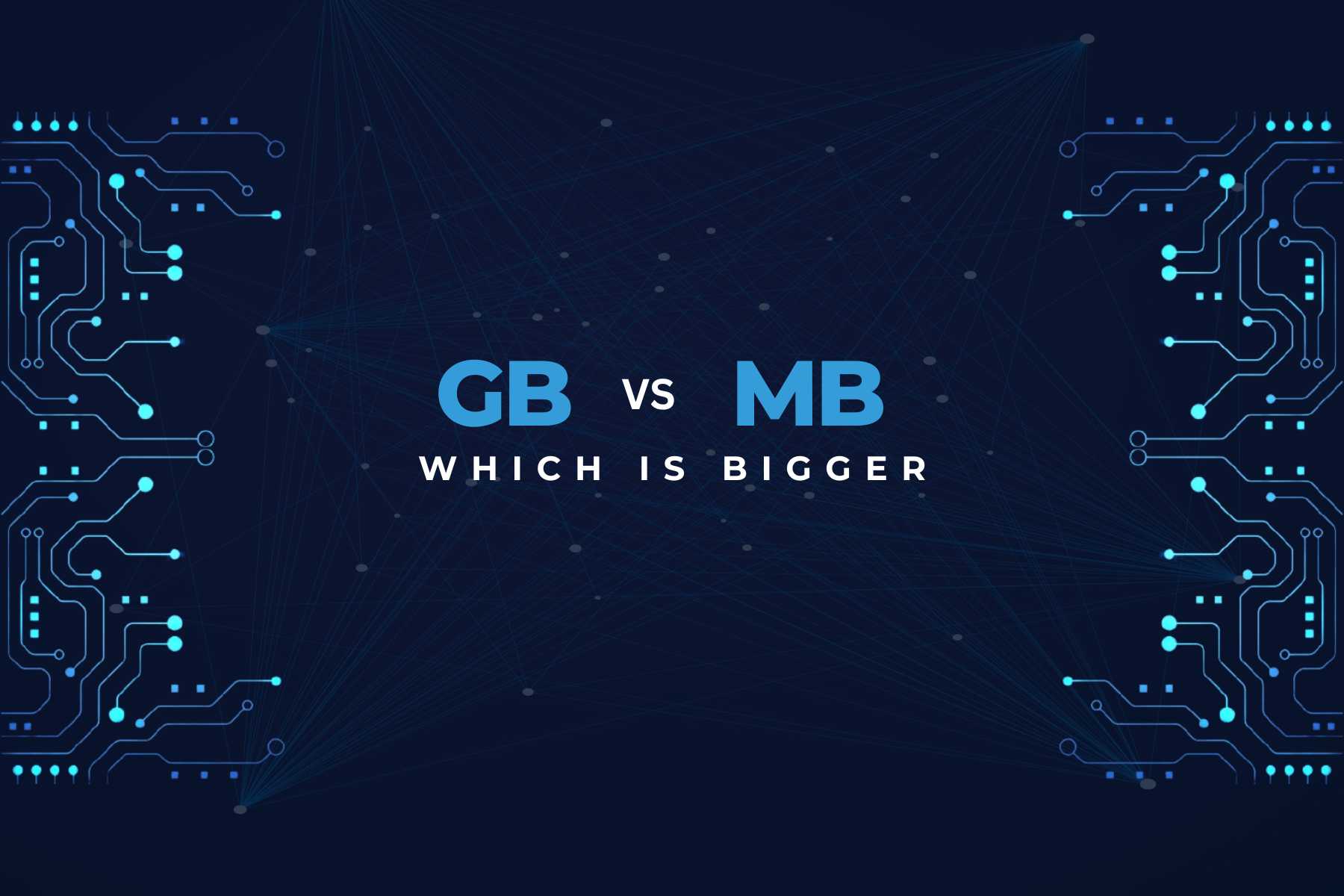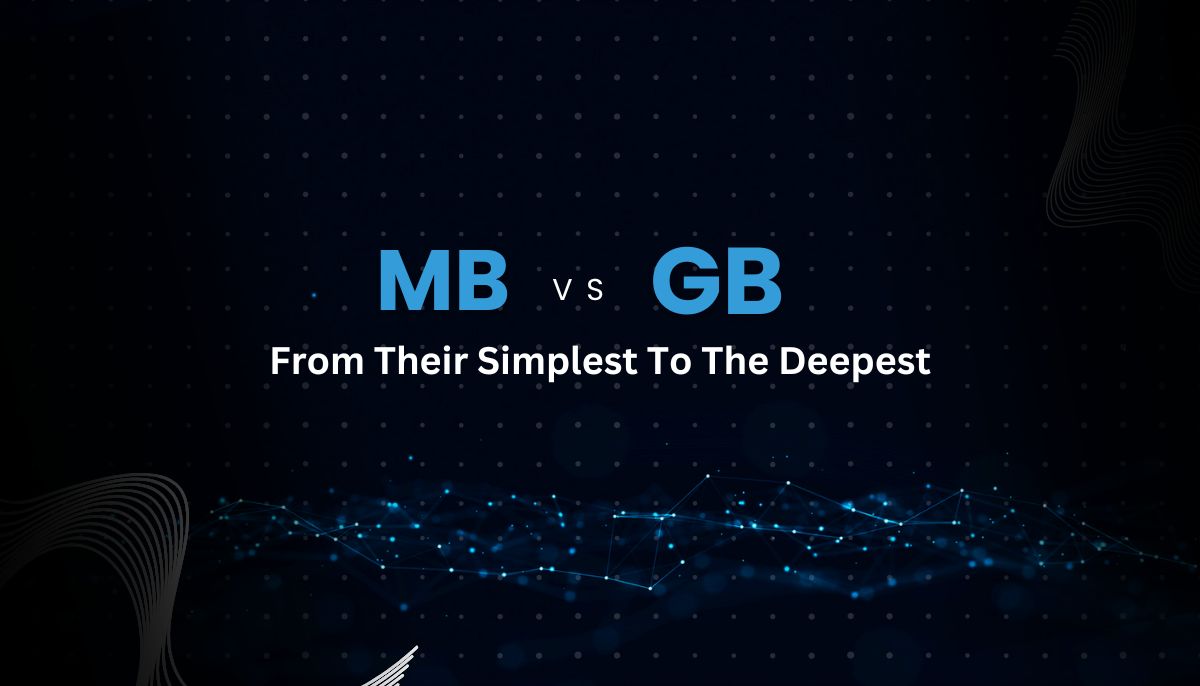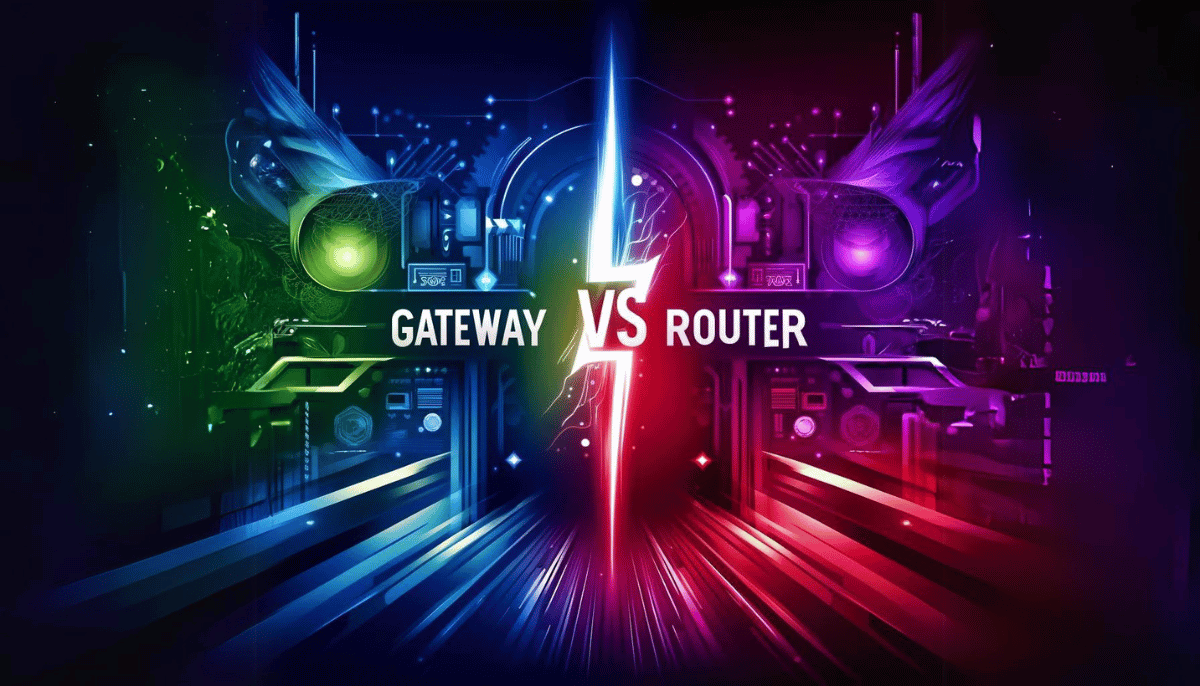GB vs MB: Understanding Data Storage and Transfer Units
Table of content
Introduction:
This article carries the quickest answers to some of the basic queries that arise in your mind when you are going to buy a new smartphone or a hard drive. These queries are related to GB, MB, and KB, which are building blocks of data storage or computer memory. We will look into their definitions and differences, and, of course, ‘What is Bigger, GB, MB, or KB?’ So, let’s start with GB vs MB.
GB vs MB:
Both these terms are a part of daily conversation when we are talking about documents stored on our computers or mobile phones. You can recall telling someone that this video is 50 GB, or this file possesses 10 MB. Let’s have a quick look at both:
What is MB (MegaByte)?
MB is a unit used to measure digital data. It has one million bites and one thousand kilobytes (KiloBytes). Bite is the most fundamental unit to measure digital data, but as the amount of data increased, it resulted in a shift towards MegaBytes (MB).
What is GB (Gigabyte)?
A GigaByte is a unit that possesses approximately one thousand MBs. GB is traditionally used to indicate the capacity of a device to store a particular amount of digital data. For example, some smartphones have more than 100 GB memory. In the same way, a hard disk can have a total capacity of 500 GB.
After defining both GB and MB it comes a quick comparison of both:
MB (MegaByte):
- One megabyte is equal to 1024 KB.
- A megabyte is a smaller unit of measurement as compared to a gigabyte.
- MB possesses approximately one million bytes.
GB (GigaByte):
- One GB is equal to 1024 MB.
- A gigabyte is a larger unit of measurement than a megabyte.
GB possesses one billion bytes.
Is GB Bigger Than MB?
The answer is yes; GB is bigger than MB. Looking back into the bottom reveals that it consumes approximately 10000 MB to make 1 GB. As a result, GB is 1000 times greater than MB. Now, you may have no confusion about GB vs MB. We hope to address the query ‘Is GB bigger than MB’ well.
You can ask now, what is a Bit (B)?
The answer is a bit is the smallest and fundamental unit to measure digital data. It further adds up to make megabytes gigabytes.
Is MB Bigger Than GB?
Does the simplicity of this question annoy you? You are not alone; people with an educational background in the field of IT can do this. But, things are not the same for all; queries like ‘Is MB bigger than GB?’ show that there has always been something to learn about what you have already done. Thus, the answer to this question is ‘NO.’ MB is not bigger than GB. MB has 1000 kilobytes whereas GB has 1ooo megabytes.
From the very start to the point, we on right now, we have answered the following questions:
- Is GB bigger than MB?
- Is MB bigger than GB?
- Is a GB bigger than an MB?
- Is an MB bigger than a GB?
These basic questions have huge importance for those who are entering the field as aspiring software engineers or IT specialists. Now, there are some other basic terms and queries that need our attention.
Is KB bigger than GB and MB?
No, KB is not bigger than GB and MB. Instead, it is smaller than both. One KB is 1000 times smaller than MB and one million times smaller than GB. Thus, KB is not bigger than GB and MB.
What is TB (TeraByte)?
For many of us, GB is the end of the story, but in actuality, it is not.
Here comes TB or TeraByte, which is 1000 times bigger than GB and is used for immensely large data sets.
What is PetaByte or PB?
With a storage capacity of approximately one quadrillion bytes, a petabyte is about 1000 times greater than a terabyte. PetaBytes, in most cases, are used to refer to a number of audio or video collections.
Conclusion:
In the above-mentioned headings, FAQs, and bullet points, we tried to come up with authentic and concise definitions of some simple terms related to data storage and computer memory. In case your thirst for knowing the basics of data storage is not quenched, we are only a single click away. You can hit us up anytime at buyrouterswitch. Yes, you don’t need to hesitate.




 Catalog
Catalog





















































































































 (800) 870-9487
(800) 870-9487